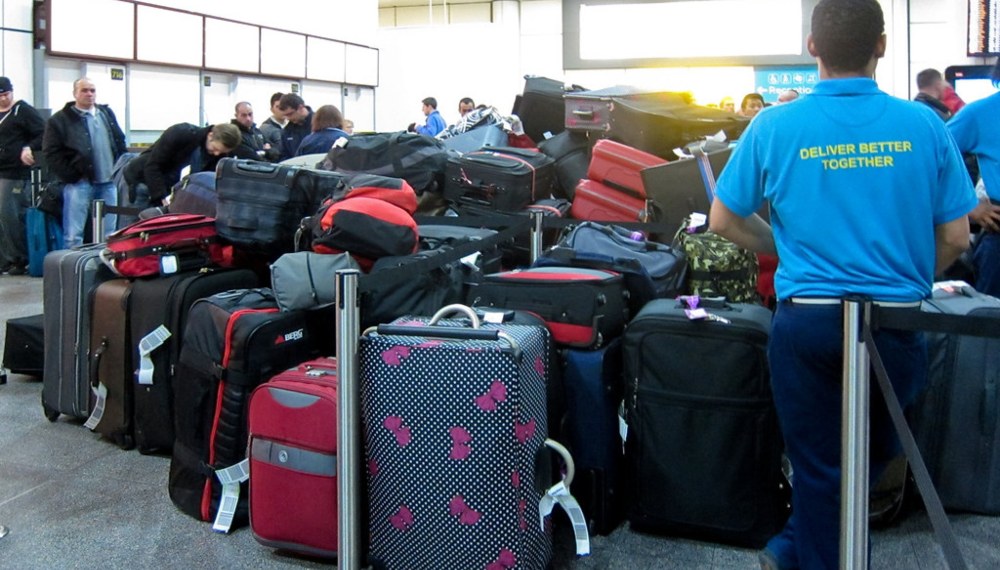In the year now ending there have been reports-a-plenty about Americans behaving badly. We lose it on planes, in cars, and on Twitter. There have been not a few articles purporting to explain why we are so angry. In this recent one at the New York Times, it is suggested that we have lost our capacity to “self-regulate,” or that we’re frustrated that life isn’t the way we want it to be, or that the real problem is that we don’t like change.
Not only that, but various therapists consulted for the article told us that anger is good and important, urged that we “feel” our anger (though not act on it). Turn it, rather, to constructive ends like helping the homelessness or reducing our consumption of plastics. This makes me grateful that I don’t own a gun.
While I don’t discount or give a pass to bad behavior, I have a different theory about why we are at least grumpy, if not out and out angry. I call it The Great Disjunction, by which I mean the yawning abyss between the world as narrated to us by public relations, advertising, and the imagery of consumerism, and our actual reality.
An example: recently we got in to Sea-Tac airport hours late, at 1:00 a.m. and took up our position in the great baggage melee. Two hours later: no bags. Okay, that happens.
However, throughout this time, as regular as clock-work, a bright, upbeat announcement came on over the loud-speakers to tell us that “Sea-Tac Airport is the No. 1 Airport in America,” with assurances about just how thrilled Sea-Tac employees are to be serving us.
Meanwhile, you are gazing at mounds of unclaimed baggage presided over by one or two wholly exhausted and dispirited airline employees. I get it, I don’t blame them. Back at the gate, when we disembarked, there were hundreds of stranded travelers looking as us with desperate envy.
One more: while on the plane itself we heard repeated another upbeat announcement telling us that our particular airline was “back,” and that all 176,000 employees have but one reason for doing what they do: YOU! After we’d been sitting on the tarmac a long while, the pilot came on to tell us that the reason we weren’t going anywhere was that his co-pilot hadn’t shown up. We were jammed in per usual, tray table to kneecap, as the safety announcement concluded with the customary, “And now just sit back, relax and enjoy the flight.”
Note: I’m not arguing that we should never be inconvenienced or run into difficulties. It happens. The Great Disjunction is the gap between the reality we experience and the constant narrative of how wonderful it all is, of amazing efficiencies, and the unwavering desire to make our experience as comfortable and satisfying as possible. This is crazy-making.
The Great Disjunction is a constant in our lives, and not just in airports or the world of travel. Have you ever seen a new car ad showing the car in question in bumper-bumper traffic? No, all new car ads feature the wide open road with no other vehicles even in sight. Good luck finding that.
Or take the rhetoric on various customer service doom loops. Your wait stretches on and on, only interrupted by recorded announcements telling you how important your call is. These alternate with requests to complete “short” surveys to insure continued quality service. Then, of course, there’s TV, where snow falls gently on imaginary winter wonderlands that might exist in Disneyland. Outside cars veer off the roads and buses grind to a halt. One can stand the hardship. It is the soundtrack of consumer euphoria that eats away at you.
I imagine I’m not telling you anything you don’t already know. But I will add this by way of explanation or perhaps excuse. I am just back from living and working in Mexico for two months. My work was in English and I don’t speak much Spanish, so if similar relentless happy talk was being flung my way there I missed it. Maybe it was, but I kind of doubt it. Hence I may be noticing the assault of happy hyperbole more than usual.
It is part of America, or the first-world, this unremitting sound track of upbeat-ness, consumer wonders, and new and improved customer service. Meanwhile, as noted, our actual reality is full of delays, poor quality products and service workers who look like ISIS hostages. This is so omnipresent that we hardly notice it — except we do.
Discover more from Post Alley
Subscribe to get the latest posts sent to your email.

A compelling argument, Anthony! Thanks for writing. I can’t help but think that a lot of the false optimism, if that’s the right term, trickles down from the top of the food chain. Corporate strategy teams, ad agencies, etc. The best solution I’ve found is to mute television commercials and download a good Ad Blocker.